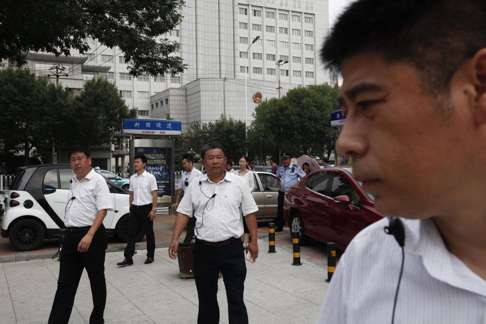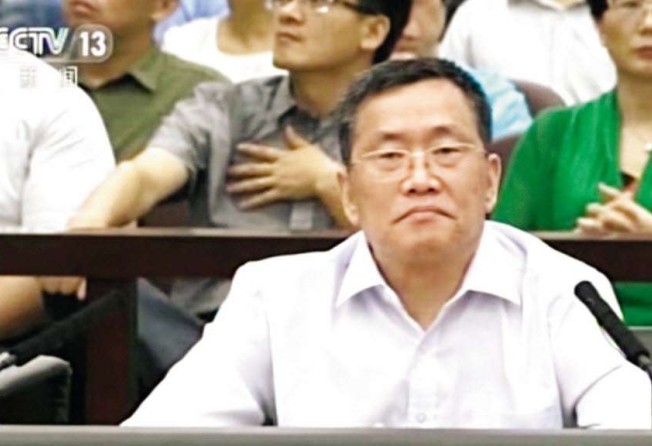
How Chinese rights lawyer’s courtroom mea culpa went off script
Some key moments in the hearings of several rights advocates caught up in a nationwide crackdown were not reflected in official transcripts

Zhou Shifeng’s final statement did not come quite as expected.
Like the other three activists tried in Tianjin at the start of the month, the head of Beijing’s Fengrui law firm, where more than 10 employees were arrested last year in a crackdown on civil society, was supposed to read from a script.
He was supposed to express little beyond regret for his “subversive” acts and gratitude towards the prosecutors and judges, who sent him to jail for seven years, for handling the case “fairly”. It was also supposed to hit the headlines the next day.
But under the watch of attendees including journalists from the South China Morning Post and four overseas news organisations invited by the Ministry of Public Security, he delivered something very different.
In a 10-minute final statement, the Peking University law school master’s degree holder praised China’s legal system, saying it was “so much beyond the Western rule of law”, and that the trial would “stand the test of the world”.
The praise was not included in the official transcript published hours later. His speech was condensed into a few paragraphs, in which he pleaded guilty and thanked the court for its fairness.
There was also no reference to Zhou delivering his statement with his arms outstretched as if on a street soapbox, before court police gently pressed them down. The judge managed to interrupt after a few attempts.
“The trial fully represents the fairness of a socialist legal system with Chinese characteristics,” Zhou said after the verdict.

It was unclear if Zhou was being sarcastic or genuine, and the same confusion hung over two interviews arranged by the authorities later that day. Former colleague Huang Liqun was one of two interviewees designated to speak to the media.
Just hours earlier, Huang had been in court testifying against Zhou. After Huang’s testimony, Zhou offered a surprising apology. “I’m sorry for what my behaviour dragged you and other colleagues into,” he said, facing Huang, who looked straight ahead at the judge. “I’m sorry, Brother Liqun.”
He called me Brother Liqun, as if he were a very decent man. I think it’s hypocritical
Talking to the media, Huang rejected Zhou’s apology as “against the requirements of the law”. “The court asked him if he had anything related to the case to ask me. He said yes, but it turned out to be a personal statement ... He lied to the court,” Huang said of Zhou’s apology. “He called me Brother Liqun, as if he were a very decent man ... It’s hypocritical.”
Out on bail, Huang said he was struggling to make ends meet as no law firm would hire him. “I’m very poor at the moment. I’m basically living with the help of my relatives and friends.”
It was unclear what Huang, who looked at his palm several times before the interview, left unsaid. But some details were omitted from official reports and transcripts of another trial.
After the trial of activist Hu Shigen, a court summary turned Hu’s reference to “thoughts of Western democracy” into simply “reactionary thoughts”.
A slight change was also made to Hu’s statement about China’s transition to a democracy. The public transcript quoted him as saying: “Once bloodshed breaks out between the government and the people, it will create a chance for international intervention.”
But it omitted the start of Hu’s sentence in court: “We don’t want bloodshed to happen, but ...”
Compared to previous cases, the court was more responsive to doubts cast by overseas media. After it was pointed out that the relatives of activist Zhai Yanmin were absent, the court released a statement the next day in which Zhou purportedly said he had stopped his relatives from going to the trial.
And after reports about blocked traffic and the heavy police presence around the court building during the trial, journalists were invited to film the perfectly unhindered traffic at the front gate – but only after the trial had ended.